Storm Arwen: Electricity firms 'unacceptable' response criticised
- Published
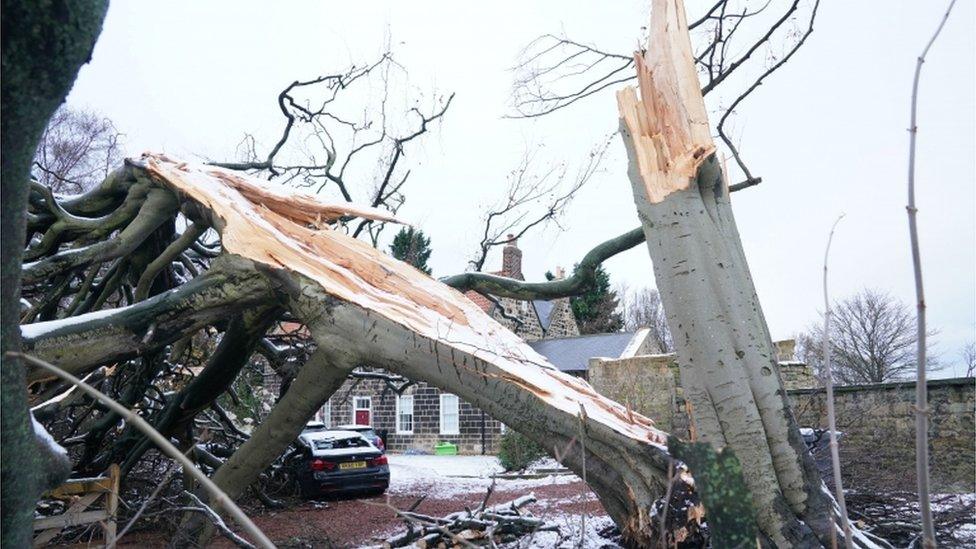
Storm Arwen split a tree in two at New York in North Tyneside, damaging a nearby car
The electricity firms' response to Storm Arwen, which left more than one million homes without power, was "unacceptable" at times, a report says.
The storm brought severe wind, rain and snow across north-east England, Cumbria and Scotland at the end of November.
An interim report by the Department for Business, external said waiting times to contact operators were too high and criticised the length of power cuts.
And although compensation of £24.5m had been paid, it had taken too long.

Some people also made advantage of the snowy weather
The report details the scale of the damage caused by the storm, showing 59,101 homes were without power for more than 48 hours, 3,032 for a week or more and 40 households had no power for 11 days.
Northumberland and Aberdeenshire both saw wind gusts of more than 90mph and 100mph respectively, and some people were left without water and communications as other essential services "lacked full resilience" to the scale of the power cuts.
The report comes a day after thousands of people were left without power after Storm Dudley hit.
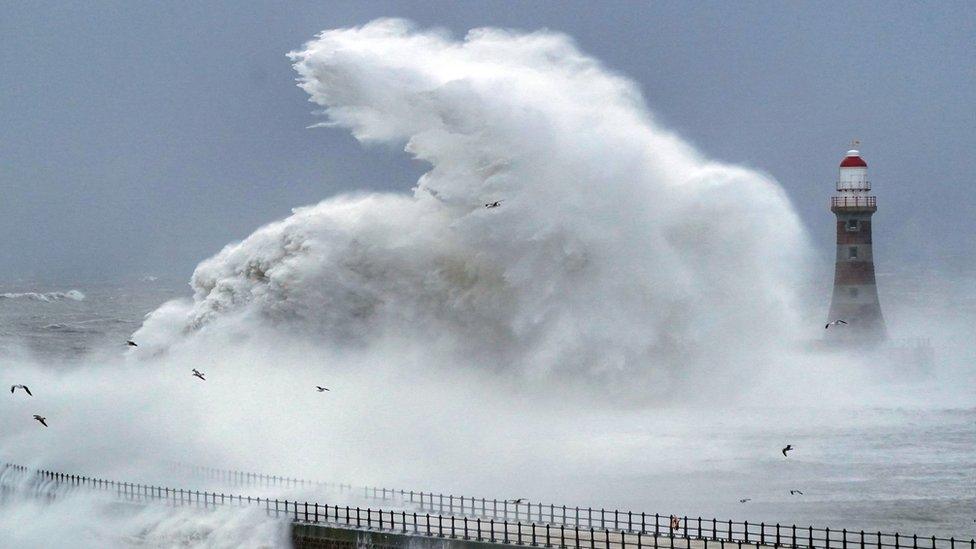
People were advised to stay away from the coast as huge waves were whipped up by the wind, as seen at Roker in Sunderland
It said:
Wait times for some customers to contact their operator were unacceptably high.
Operators needed to take better notice of the "unusual" northerly wind as a risk, and better account for wind direction as well as speed and duration.
There were unacceptably long power cuts to some households, especially those in rural areas.
Firms should set up a better process for compensation.
In total, nearly 6,500 faults were recorded on the power network, mainly to overhead lines. On the peak day of the storm, 27 November, operators recorded 2,478 faults, 10 times more than a typical day.
Most of these were due to trees falling on to lines, strong winds snapping the wooden poles that supported them and ice forming around the lines which caused them to break under the weight.
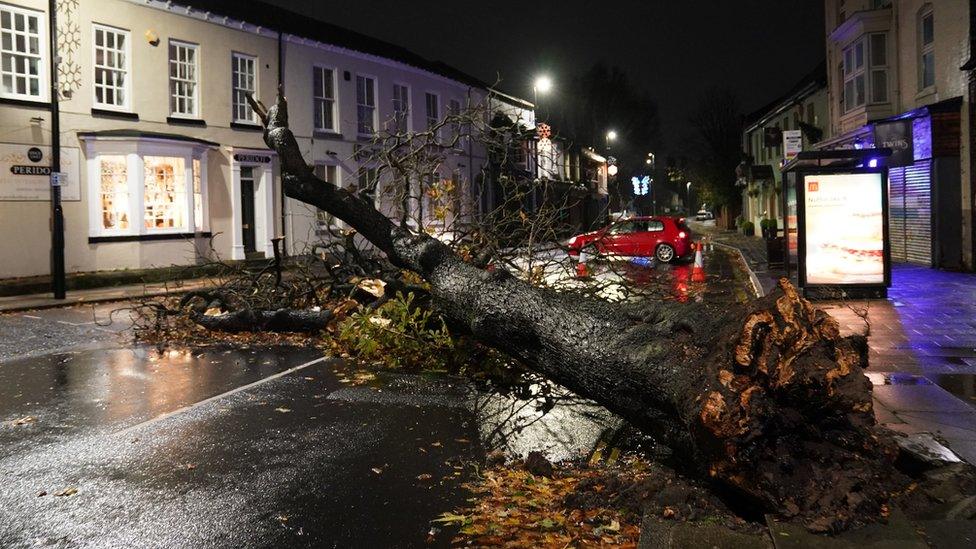
The wind brought down hundreds of trees, including in the centre of Norton near Stockton-on-Tees
The companies were criticised for their communications during the storm, with Northern Powergrid's website falling over for more than 15 hours during the peak.
They are also urged to "review" their telephone systems and "stress test" their capacity after Electricity North West saw 32,297 calls in a single day and had an average of 15 staff answering them.
However, the report notes the firms' efforts to help vulnerable people, with SSEN (North) providing 93,000 hot meals to people without power.

A lot of damage was caused by the wind, including part of a wall collapsing on a car in Sunderland
The wait for compensation is also highlighted, with 87,935 claims due to be paid, but more than 10,000 were still outstanding at the end of January. The report said "new processes" should be established to ensure payment "occurs without delay".
It added the £700 cap on compensation claims, which was lifted for Storm Arwen, "should be reviewed".
This is an interim report, with watchdog Ofgem also publishing the same, external. Both organisations will then publish their final reports on 31 March.
Ofgem is looking at whether operators complied with legal standards around areas such as infrastructure investment.
If those were breached, Ofgem will consider if "enforcement action needs to be taken against them" and it can fine firms up to 10% of their turnover.

Follow BBC North East & Cumbria on Twitter, external, Facebook, external and Instagram, external. Send your story ideas to northeastandcumbria@bbc.co.uk, external.
Related topics
- Published18 January 2022

- Published6 January 2022
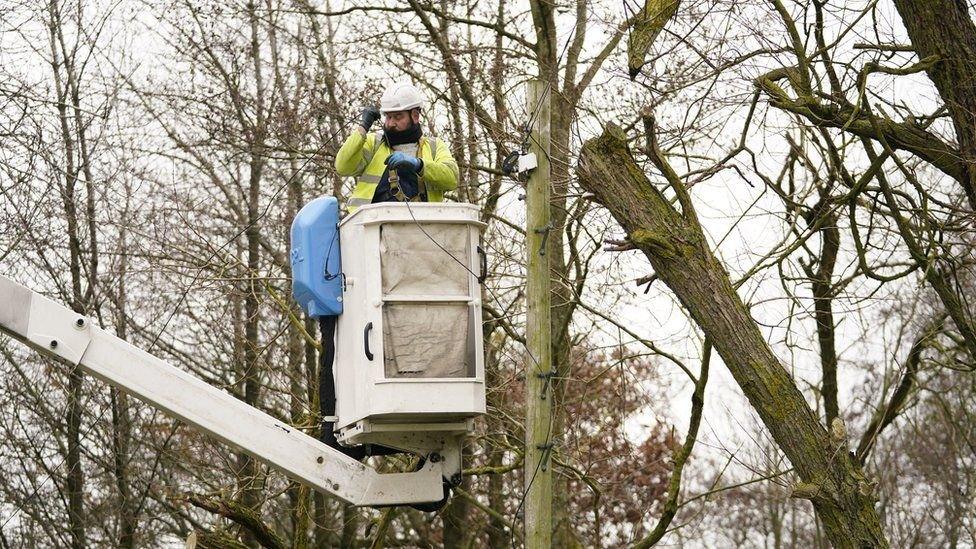
- Published8 December 2021

- Published29 November 2021
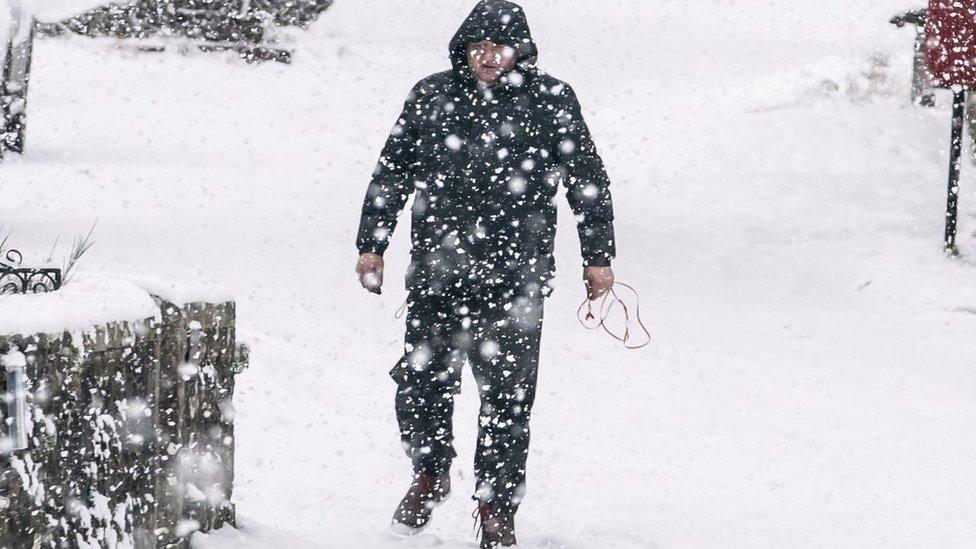
- Published30 November 2021

- Published28 November 2021

- Published27 November 2021
